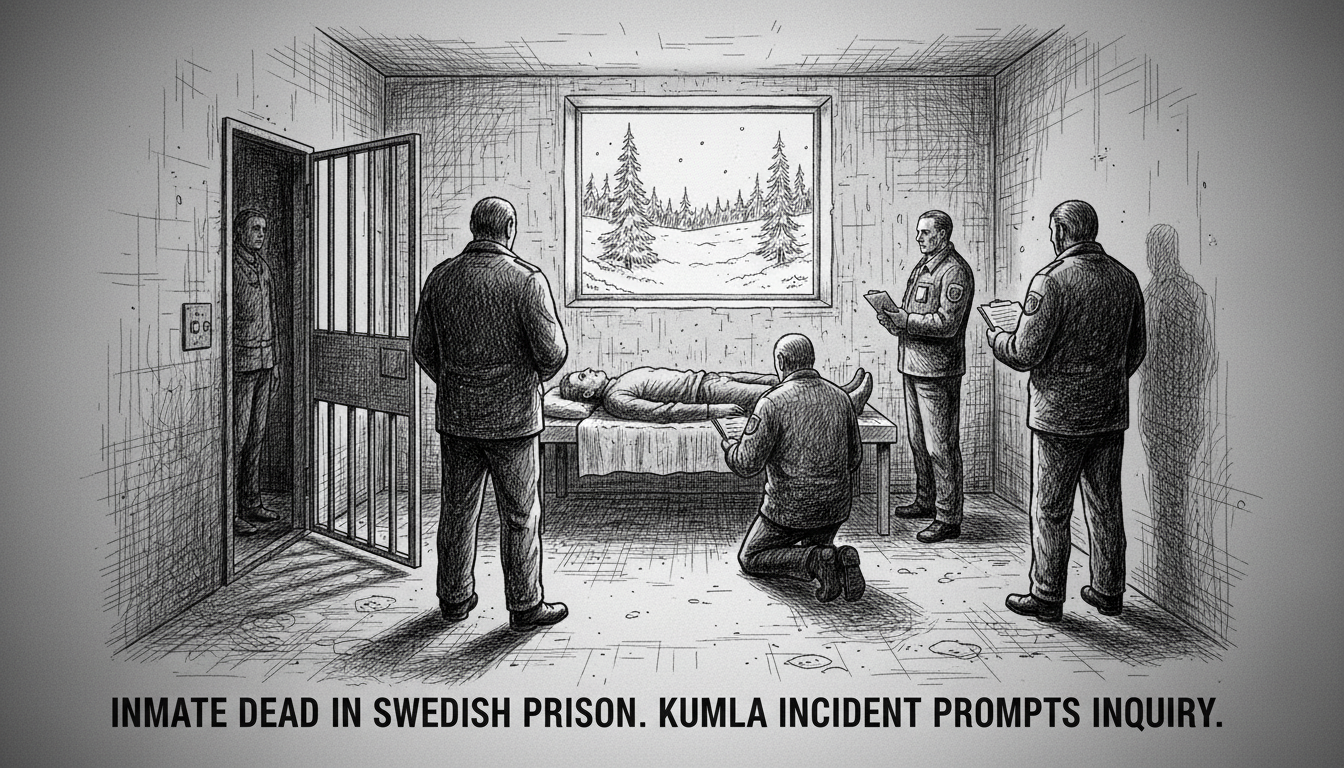A man in his thirties was discovered dead in his cell at Kumla prison on Monday morning. Prison staff found the inmate during routine morning unlock procedures. Medical personnel confirmed the death shortly after arriving at the scene.
The inmate had been alone in his cell at the time of the incident. Police from the Bergslagen region immediately launched an investigation into the circumstances surrounding the death. Officials have not released details about the nature of their inquiry or potential causes.
This incident raises important questions about Sweden's prison system and inmate welfare. Kumla represents one of Sweden's most secure correctional facilities, housing individuals convicted of serious crimes. The prison has faced scrutiny in previous years over conditions and security protocols.
Sweden's approach to incarceration has traditionally emphasized rehabilitation over pure punishment. The country's prison system often receives international attention for its focus on human dignity and reintegration. Yet incidents like this remind us that even progressive systems face serious challenges.
Prison conditions remain a complex issue within Swedish society trends. The country balances humane treatment with public safety concerns. Recent debates have focused on overcrowding and mental health support for inmates. Many question whether sufficient resources exist to address these systemic issues.
International observers often look to Nordic prison models as potential examples for reform. Sweden's emphasis on rehabilitation and normalized living conditions stands in contrast to many other systems. Still, tragic events demonstrate that no system is perfect.
The investigation continues as authorities work to determine what happened in that isolated cell. The man's family has been notified, though his identity remains confidential during the ongoing police inquiry. This case will likely prompt internal reviews within the Swedish Prison and Probation Service.
What does this mean for Sweden's reputation regarding criminal justice? The country maintains generally low incarceration rates compared to international standards. Swedish lifestyle and social policies often prioritize prevention and early intervention over lengthy prison sentences. Yet when deaths occur behind bars, they demand honest examination of current practices.
As the investigation unfolds, broader conversations about prisoner welfare will undoubtedly continue. Swedish society continues to grapple with how to balance punishment, protection, and human dignity within its correctional institutions.

